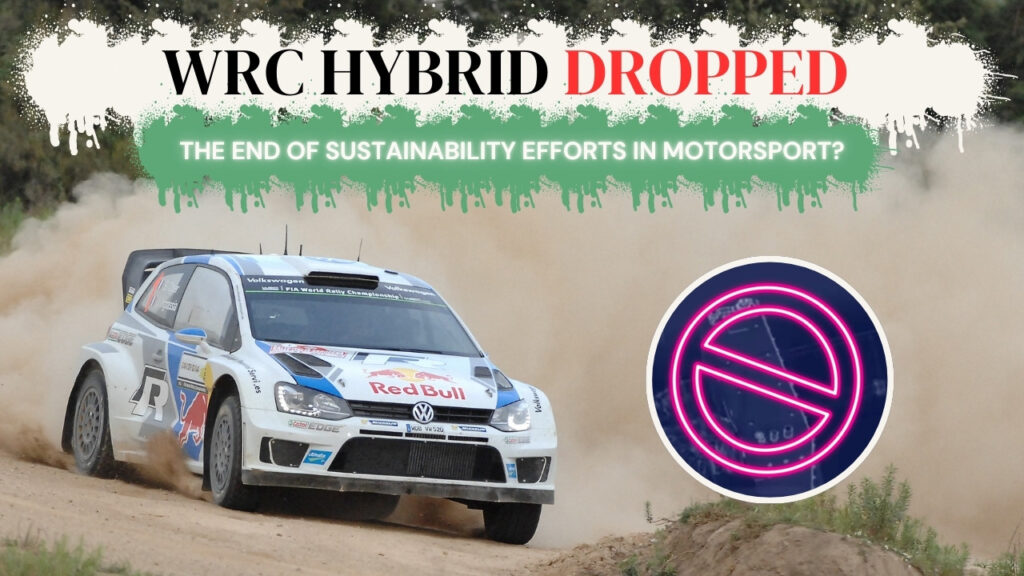Hybrid technology is no longer a thing in the World Rally Championship (WRC). Is it the beginning of the end for sustainability in motorsport? Are fossil fuels back in the game? Here, you will find everything you need to know.
Do you have any idea how sustainable is fuel used in Formula 1? Click HERE to find out
Back to the roots
WRC relationship with hybrid has been a short one. Introduced in 2022, the technology didn’t result in more manufacturers competing in the championship. Furthermore, over time, drivers (not all of them!) started to express their dissatisfaction. Some pointed out the reliability issues, others were complaining about the complexity of the system.
Eventually, in 2024, the decision was made to ditch the hybrid. That way, WRC became the very first championship to go back all the way to technology once deemed as a thing of the past – the traditional internal combustion engine (ICE).
Some might have seen this decision as a U-turn on sustainability in motorsport, rally in particular. Were they right?
Sustainability in motorsport is alive
Not really. First and foremost, the FIA Sustainable Energies Roadmap states clearly that all world championships must run on clean energy by 2026. WRC was one of the first series that became complaint with that framework.
In 2022, it wasn’t only the hybrid that made a debut on the world’s most famous special stages. The second component of the transition was sustainable fuel, which – in contrast to hybrid – has passed the test of time and is here to stay. For 2025 and beyond.
Era of sustainable combustion continues
The successful introduction of sustainable fuel to WRC has redefined combustion, yet the process is still lick-alike. The roaring sound hasn’t got anywhere. However, what makes it possible is fundamentally different from fossil fuels.
The fuel currently in use is fossil-free. Its chemical composition guarantees similar level of reliability and performance to traditional fuel. The difference in emissions is, on the other hand, huge. With that small change in petrol tank, WRC is able to save approximately 80% CO2e emissions. In 2024, it accounted for more than 500,000 kg over the course of the season.
The future of sustainability in motorsport
At this point, you know that WRC dropped the hybrid, but at the same time keeps on racing on sustainable fuel. The next major regulation overhaul is, however, just 2 years away. What 2027 will bring in terms of technology used in WRC?
As it turns out, the hybrids may not have said their last word. According to the regulations, starting 2027, total of 3 different technologies will be allowed in the Rally world – internal combustion engine (ICE), electric and hybrid. ICE and hybrid will have to run on sustainable fuel.
Speaking about sustainable fuels, they are likely to preserve their dominant status. This technology is already well-integrated into WRC, and will probably remain the preferred option come 2027.
Simultaneously, 2025 & 2026 is a great opportunity to catch a breath before a fresh start. New regulations support the case of an eclectic future, where various low-carbon technologies can thrive. That, in my opinion, reflects well the needs of our society.
